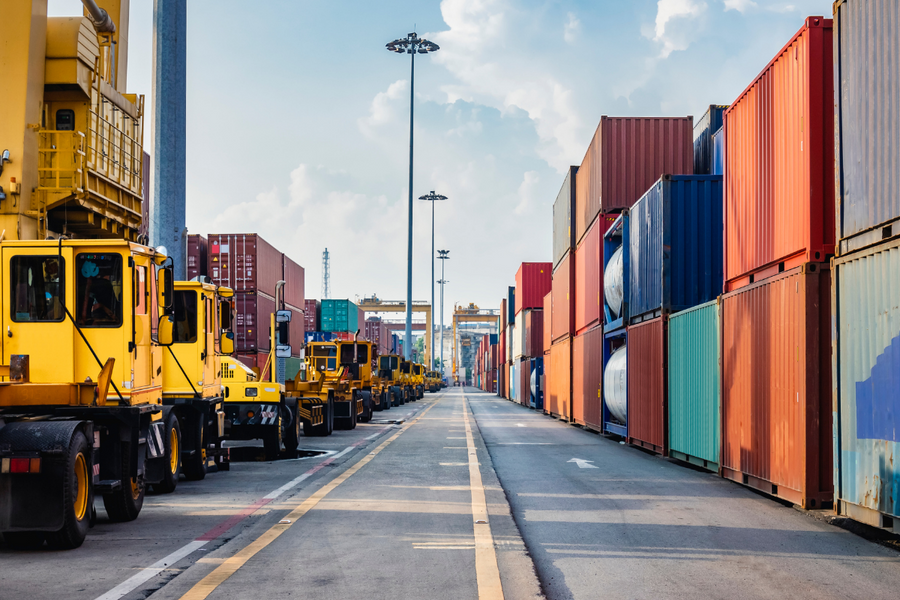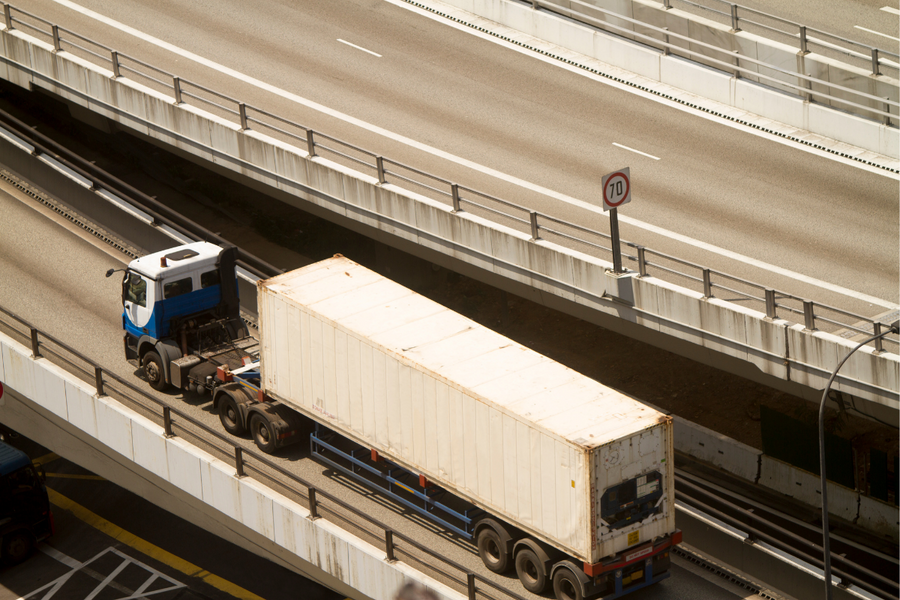Sustainable 3PLs have been diligently working to figure out ways to reduce fuel consumption, limit emissions, and move towards greener solutions that have less of an impact on climate change. More and more frequently, we are seeing a push from the public for freight transportation companies to be accountable for their impact. As a result, more and more 3PLs are making more significant investments in finding sustainable solutions for their operations.
NOx Emissions and Trucks
Nitric Oxide or NOx is a byproduct of burning gasoline and fuel in cars and trucks. large quantities of NOx are harmful to the environment. NOx is the most significant contributor to air pollution and is responsible for the smog in most major cities and highly populated areas. NOx also causes acid rain, which damages plants and increases the pH levels of bodies of water to dangerous levels for wildlife. With many individuals relying on cars and trucks for transportation, it is clear that society –and the freight transportation industry– needed to find more sustainable solutions that have less of an impact on air pollution.
How the Freight Transportation Industry is Reducing NOx Emissions?
The reduction of NOx emissions began by creating new exhaust systems that more effectively filter the air or collect NOx emissions so that they can be safely processed and discarded. Other solutions have included discovering ways to make freight transportation more fuel-efficient. Because NOx is a byproduct of burning fuel, trucks that burn less fuel over time logically have fewer NOx solutions.
Electric trucks are another exciting technology undergoing research. Electric trucks would have zero NOx emissions because they wouldn’t burn any fuel whatsoever. Truck manufacturers are investing significantly in EV trucks to bring them to market as quickly as possible to improve the sustainability of freight transportation. Though there have been many advances in finding ways to reduce NOx emissions in freight transportation, there is still much work to do and improvements to make. In 2019, the International Council on Clean Transportation performed a study on the current state of NOx emissions from trucks and found that there is still plenty of room for improvement. For example, trucks are still not efficient at reducing NOx emissions in high-traffic areas or urban centers, as idling vehicles contribute up to 40% of all NOx emissions. However, the trajectory of technology is heading in the right direction.
What Is Green Logistics?
Green logistics is a sustainable and eco-friendly process that takes into account the entire lifecycle of a product from manufacturing to disposal, with the objective of decreasing the overall impact of logistics. Green logistics is a break from the norm for traditional 3PLs.
Logistics companies need to balance the demands of the suppliers, the shippers, and even the end consumers. These requirements fall into three categories, economy, society, and environment, with the environment commonly being overlooked or undervalued. 3PLs provide management over the flow of products and materials between the original supplier to the end-user destination including shipping, inventory, warehousing, packaging, and security. As demands for the entire supply chain change to be more environmentally conscious, so do these applications that impact 3PL sustainability.
Laws and Regulations On The Forefront
The EPA is leading the charge in pushing sustainability in the freight transportation industry with its greenhouse gas rules, or GHG rules. These laws introduce a phase-out approach that requires freight transportation companies to reduce their emissions by a certain percentage over time. If trucking companies fail to meet these benchmarks, they will face significant penalties or fines. The benefit of these rules is that sustainable 3PLs embrace technology and invest in research to reduce emissions.

5 Ways a Sustainable 3PL Can Help Your Company
Sustainable 3PLs implement five measures for environmental protection and resource conservation:
Customer, Market, and Product
Making the logistics supply chain greener starts with the packaging. Sustainable 3PLs help customers pick and pack, assemble, and kit products to reduce packaging waste. By optimizing the way products fit in your packaging, you can reduce overpack or filler.
Structures and Planning
Logistics companies can often reduce their footprint by implementing LTL freight. For example, a customer might only have half a load’s worth of product and can wait a few days. The logistics company can then combine multiple partial loads into one full load. This economizes the truck driver’s time, saves on fuel cost and vehicle wear-and-tear, and is better for the environment.
Processes, Control, and Measurement
Identifying the drivers of waste can lead to more efficient and environmentally friendly logistics. Once they are identified, they can be examined to figure out where the opportunity for change occurs. There is a lot of waste grandfathered into many corporations, even lean logistics companies.
Technologies and Resources
Thanks to Big Data, companies now have the ability to measure and track loads in a whole new way. Advances in eco-friendly engines provide efficient methods to transport shippers’ loads.
Employees, Suppliers, and Service providers
Getting everyone on board is key to making any cultural changes. It needs to first start with leadership. Once the entire company observes the new methods and beliefs being used by the c-suite, everyone will follow suit.
The Future of 3PL Sustainability
In 3PL sustainability, great strides have been made to move towards more efficient and more environmentally friendly solutions for freight transportation As cleaner technology becomes available and accessible to trucking companies, the transition to sustainable options will, increase efficiency Older, less environmentally friendly trucks will continue to be cycled out in the upcoming years, making room for newer models that consume less fuel and emit fewer emissions. The future of 3PL sustainability and freight transportation is bright and will continue to improve over time.
Contact us today to hear how East Coast Transport plans to grow our company into a more sustainable future.

